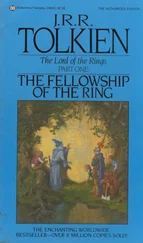Helge Fauskanger - J.R.R. Tolkien’s Lord’s prayer and Hail Mary in Quenya - Syntactical and Etymological Analysis
Здесь есть возможность читать онлайн «Helge Fauskanger - J.R.R. Tolkien’s Lord’s prayer and Hail Mary in Quenya - Syntactical and Etymological Analysis» весь текст электронной книги совершенно бесплатно (целиком полную версию без сокращений). В некоторых случаях можно слушать аудио, скачать через торрент в формате fb2 и присутствует краткое содержание. Жанр: Языкознание, на английском языке. Описание произведения, (предисловие) а так же отзывы посетителей доступны на портале библиотеки ЛибКат.
- Название:J.R.R. Tolkien’s Lord’s prayer and Hail Mary in Quenya: Syntactical and Etymological Analysis
- Автор:
- Жанр:
- Год:неизвестен
- ISBN:нет данных
- Рейтинг книги:5 / 5. Голосов: 1
-
Избранное:Добавить в избранное
- Отзывы:
-
Ваша оценка:
- 100
- 1
- 2
- 3
- 4
- 5
J.R.R. Tolkien’s Lord’s prayer and Hail Mary in Quenya: Syntactical and Etymological Analysis: краткое содержание, описание и аннотация
Предлагаем к чтению аннотацию, описание, краткое содержание или предисловие (зависит от того, что написал сам автор книги «J.R.R. Tolkien’s Lord’s prayer and Hail Mary in Quenya: Syntactical and Etymological Analysis»). Если вы не нашли необходимую информацию о книге — напишите в комментариях, мы постараемся отыскать её.
J.R.R. Tolkien’s Lord’s prayer and Hail Mary in Quenya: Syntactical and Etymological Analysis — читать онлайн бесплатно полную книгу (весь текст) целиком
Ниже представлен текст книги, разбитый по страницам. Система сохранения места последней прочитанной страницы, позволяет с удобством читать онлайн бесплатно книгу «J.R.R. Tolkien’s Lord’s prayer and Hail Mary in Quenya: Syntactical and Etymological Analysis», без необходимости каждый раз заново искать на чём Вы остановились. Поставьте закладку, и сможете в любой момент перейти на страницу, на которой закончили чтение.
Интервал:
Закладка:
ëa, primarily a verb is or exists (UT:305/317, VT39:7), also imperative be! Notice that ëais stronger than the simple copula ná, though both may be translated "is". The form ëais also used as a noun (then more commonly spelt Eä), within Tolkien’s mythos a name of the universe that came into being when Ilúvatar granted independent existence to the Music of the Ainur. However, in the text before us the word is apparently used to translate heaven (unless, as we suggested above, i ëa han ëaactually means * who is above the universe ). The verb ëais the basic word here, since its application as a noun is secondary: "The Elves called the World, the Universe, Eä – It is" (footnote in Letters:284). "This world, or Universe, [the Creator] calls Eä , an Elvish word that means It is or Let it Be " (MR:330). As for the primitive form of this word, strong hints are provided by what Tolkien wrote in Quendi and Eldar (VT39:6-7): "The former presence of intervocalic ñ , later lost in Quenya, could be detected by consideration of the relations between tëa indicates and… tengwe sign , and comparison with ëa exists beside engwe thing ." Tengwe sign represents primitive teñ-wê sign , token (VT39:17), the letter ñdenoting "ng" as in English "king" (LR:346, MR:350). Notice that primitive ñ+ wproduces Quenya ngw, while intervocalic ñwas lost: Tëa indicates (derived from the same root teñ [WJ:394] as teñ-wê> Q tengwe) is clearly meant to represent earlier * teñâ. Since Tolkien also mentions Quenya ëa exists and engwe thing in this context, we are obviously to assume that these descend from * eñâand * eñ-wê(though he did not actually provide these primitive forms). It would seem that the primitive stem having to do with existence was *eñ- (*eñe). * Eñâwould be a primitive A-stem verb, the origin of Q ëameaning is or exists . Yet ëamay also be interpreted as an imperative be! , and this meaning is of course relevant for the use of Eäas a name of the universe, since Eru gave existence to the Music of the Ainur by this very command: "I know the desire of your minds that what ye have seen should verily be…even as ye yourselves are, and yet other. Therefore I say: Eä! Let these things Be!" ( Ainulindalë .) This imperative ëamay be referred to * eñ( e) â, the latter element being the primitive imperative particle, "originally independent and variable in place" (WJ:365; compare the primitive imperative phrase hek( e) â> Quenya heka! be gone! , WJ:364-365). – The fact that the word ëaappears in the Lord’s Prayer translation is an important clue regarding the dating, for this word (or at least Eä/ Ëaas a name of the universe) does not seem to have entered Tolkien’s mythos before 1951; see LR:338, MR:7, 31.
elye, emphatic pronoun: you , thou . Previously attested in Namárië (there spelt with a diaeresis: elyë); see emmebelow for further discussion [15] If as elye should really read aselye in one word, the emphatic pronoun elye does not after all occur in this text.
.
emme, emphatic pronoun: exclusive we . Also with dative ending: emmen, (for) us . A new word in itself, but one that reassuringly confirms a pattern that has long been recognized: that pronominal endings can be turned into independent, emphatic pronouns by prefixing e-. Until now, our sole example has been elyë thou (or, since it is emphatic, even thou ) in Namárië. This is an emphatic, independent pronoun corresponding to the pronominal ending - lyë, as is clearly seen in the final line of the song: Nai hiruva lyë Valimar! Nai elyë hiruva! Maybe thou shalt find Valimar! Maybe even thou shalt find it! For the ending - mmedenoting exclusive we , see firuvamme; emmethus has the same relationship to the ending - mmeas elyehas to the ending - lye. (We know only one more emphatic pronoun, the first person form inye I in LR:61, that connects with the pronominal ending - nye. The form inyerather than ** enyëhas been regarded as an exception to the normal rule [16] the prefixed i - in this case may reflect the stem-vowel of ni 2 - I , LR:378
. The form emmesupports the theory that inyeis an exception, the prefix used to derive emphatic pronouns normally being e- instead.) The dative form emmenindicates that emphatic pronouns can take case endings, our first example of this.
Eruo, inflected noun God’s , genitive of Eru, God or literally the One . The genitive of Eruwas already attested in the phrase Oienkarmë Eruo the One’s [Eru’s, God’s] perpetual production (MR:329, 471); as for the genitive ending - o, see separate entry. All sources agree that the divine name Eru(that the Elves pronounced on solemn occasions only, WJ:402/MR:211) is to be interpreted the One : "There was Eru, the One, who in Arda is called Ilúvatar…" ( Ainulindalë ). When asked what her Mannish tribe called God, Andreth told the Elven-king Finrod that it was "as it is with you [the Elves], but different only in sound: The One" (MR:352). Beyond such simple statements of what Erumeans, its etymology as a Quenya word is not explicitly discussed anywhere (see SD:432 concerning Êruas an Adûnaic word, though). However, in Letters:384, Tolkien referred to the "important element er (in Elvish) = one, single, alone ." One reason for its being "important" would presumably be that it is transparently the basis of the divine name. In the Etymologies and the Qenya Lexicon , this "element" appears as ere- be alone, deprived (LR:356) or remain alone (QL:36). In these sources the stem-vowel is reduplicated and suffixed, ere instead of just er, but this is merely another way of quoting the stem. (See firuvammefor the stem phir- also being quoted as phiri with the vowel repeated; see also quantaregarding the stem kwat- also being quoted as kwata.) The name Erumust be derived from the simplest form er as in Letters:384, without ómataina (reduplicated and suffixed stem-vowel). The primitive form of the name would be * Erû, including the same masculine/animate ending - ûas in the primitive words atû father (LR:349 s.v. ata- father ) and kherû master (Letters:178, 282, stem given as kher- possess , cf. LR:364). Whether Tolkien meant that this name actually occurred in the primitive language is of course another matter: what they knew about Eru the Eldar must have learnt after they got to Valinor and were taught by the Valar (WJ:402 s.v. Eru ). The Quenya name Eruis indeed said to be an Elvish translation of a Valarin name that is nowhere revealed (WJ:402 cf. 403). In any case, a name meaning the One can obviously be applied to the God of the monotheistic Judeo-Christian conception, so Tolkien could use it to translate God when rendering Christian/Catholic texts into Quenya.
Читать дальшеИнтервал:
Закладка:
Похожие книги на «J.R.R. Tolkien’s Lord’s prayer and Hail Mary in Quenya: Syntactical and Etymological Analysis»
Представляем Вашему вниманию похожие книги на «J.R.R. Tolkien’s Lord’s prayer and Hail Mary in Quenya: Syntactical and Etymological Analysis» списком для выбора. Мы отобрали схожую по названию и смыслу литературу в надежде предоставить читателям больше вариантов отыскать новые, интересные, ещё непрочитанные произведения.
Обсуждение, отзывы о книге «J.R.R. Tolkien’s Lord’s prayer and Hail Mary in Quenya: Syntactical and Etymological Analysis» и просто собственные мнения читателей. Оставьте ваши комментарии, напишите, что Вы думаете о произведении, его смысле или главных героях. Укажите что конкретно понравилось, а что нет, и почему Вы так считаете.












